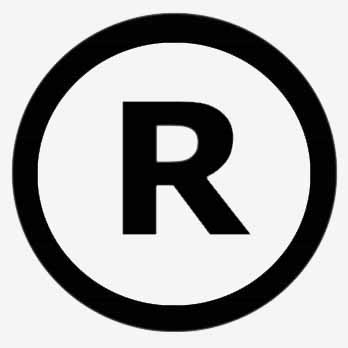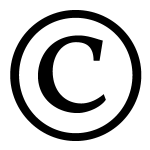What’s the First Step When Applying for a Trademark?

Before you begin your trademark application process, you should first search the USTPO’s database to see if any trademark has been registered that is: • Similar to your trademark • Used on related products or for related services, and • Currently active If there is a trademark that meets all over the three above criteria, […]
Read More Posted by reichertlegal
Posted by reichertlegal- Posted in Intellectual Property Baltimore Maryland Attorney, Intellectual Property Baltimore Maryland Lawyer, Intellectual Property Law Maryland, Trademark Application United States, Trademark Attorney United States, Trademark Company, Trademark Filing Registration, Trademark Filing United States, Trademark Law Attorney Maryland, Trademark Law Lawyer Baltimore Maryland, Trademark Lawyer United States
 Oct, 17, 2019
Oct, 17, 2019 Comments Off on What’s the First Step When Applying for a Trademark?
Comments Off on What’s the First Step When Applying for a Trademark?
What’s the General Timeline for a Trademark Application?

After an initial trademark application has been filed, the total process can take between three months to one year to complete. After USPTO reviews the application, the trademark can go one of two ways: USPTO will either 1.) approve, publish, and register the trademark, or 2.) issue a series of letters explaining the grounds for […]
Read More Posted by reichertlegal
Posted by reichertlegal- Posted in Intellectual Property Baltimore Maryland Attorney, Intellectual Property Baltimore Maryland Lawyer, Intellectual Property Law Maryland, Trademark Application United States, Trademark Attorney United States, Trademark Company, Trademark Filing Registration, Trademark Filing United States, Trademark Law Attorney Maryland, Trademark Law Lawyer Baltimore Maryland, Trademark Lawyer United States
 May, 23, 2019
May, 23, 2019 Comments Off on What’s the General Timeline for a Trademark Application?
Comments Off on What’s the General Timeline for a Trademark Application?
Do Laws of Copyright Apply to the Internet?

The short answer: yes. When in doubt, consider the matter to be under copyright and if you desire to use the work or portions of it, contact the copyright holder and request written permission. People often assume that internet material is free for the taking since getting to the material was free, i.e. you didn’t […]
Read More Posted by reichertlegal
Posted by reichertlegal- Posted in Attorney Maryland, Author Attorney Baltimore Maryland, Author Lawyer Baltimore Maryland, Copyright Attorney Baltimore Maryland, Copyright Attorney Maryland, Copyright Law Baltimore Maryland, Copyright Law Maryland, Copyright Lawyer Maryland, Intellectual Property Baltimore Maryland Attorney, Intellectual Property Baltimore Maryland Lawyer, Intellectual Property Law Maryland, Lawyer Baltimore Maryland, Trademark Attorney United States
 Feb, 06, 2017
Feb, 06, 2017 Comments Off on Do Laws of Copyright Apply to the Internet?
Comments Off on Do Laws of Copyright Apply to the Internet?
Maryland Copyright Lawyer: What Cannot Be Copyrighted?

The list of items that we cannot copyright is long but I’ll list a few here that folks often think they can copyright but they cannot. Facts cannot be copyrighted. If you are writing a explanation of how people play the game of baseball you don’t need to get permission from Major League Baseball or […]
Read More Posted by reichertlegal
Posted by reichertlegal- Posted in Author Attorney Baltimore Maryland, Author Lawyer Baltimore Maryland, Copyright Attorney Baltimore Maryland, Copyright Law Maryland, Copyright Lawyer Maryland, Intellectual Property Baltimore Maryland Attorney, Intellectual Property Baltimore Maryland Lawyer, Intellectual Property Law Maryland, Publisher Attorney Baltimore Maryland, Publisher Lawyer Baltimore Maryland
 Apr, 05, 2015
Apr, 05, 2015 Comments Off on Maryland Copyright Lawyer: What Cannot Be Copyrighted?
Comments Off on Maryland Copyright Lawyer: What Cannot Be Copyrighted?
Maryland Intellectual Property Attorney: “Fair Use” and Quoting Previously Published Poetry

Permission is usually required if you use more than two lines of a poem. If the whole poem is only a few lines long, you may need permission to quote any of it. A fee may be required and you should inquire with the publisher and/or the poet. For a free, confidential conversation to discuss […]
Read More Posted by reichertlegal
Posted by reichertlegal- Posted in Contract Law Baltimore, Contract Law Maryland, Copyright Attorney Maryland, Copyright Law Baltimore Maryland, Copyright Law Maryland, Copyright Lawyer Maryland, Intellectual Property Baltimore Maryland Attorney, Intellectual Property Baltimore Maryland Lawyer, Intellectual Property Law Maryland
 Feb, 05, 2015
Feb, 05, 2015 Comments Off on Maryland Intellectual Property Attorney: “Fair Use” and Quoting Previously Published Poetry
Comments Off on Maryland Intellectual Property Attorney: “Fair Use” and Quoting Previously Published Poetry
Baltimore Maryland Copyright Lawyer: Quoting a Published Book and “Fair Use” of Copyright Material

Publishers require that you obtain permission if you are quoting text in excess of a maximum word count, this is typically anywhere between 100 and 1000 words depending on the publisher. You should contact the publisher for guidelines before using the quote. For a free, confidential conversation to discuss these and other copyright law matters, […]
Read More Posted by reichertlegal
Posted by reichertlegal- Posted in Copyright Attorney Maryland, Copyright Law Baltimore Maryland, Copyright Law Maryland, Copyright Lawyer Maryland, Intellectual Property Baltimore Maryland Attorney, Intellectual Property Baltimore Maryland Lawyer, Intellectual Property Law Maryland
 Jan, 26, 2015
Jan, 26, 2015 Comments Off on Baltimore Maryland Copyright Lawyer: Quoting a Published Book and “Fair Use” of Copyright Material
Comments Off on Baltimore Maryland Copyright Lawyer: Quoting a Published Book and “Fair Use” of Copyright Material
Maryland Trademark Attorney: Create a Doing Business As (DBA) Name And Trademark It Later

The question was recently posed to me about the difference between Doing Business As and having the same name trademarked at a later time. The state can designate a Doing Business As after checking the name against other company names in the Maryland state database. This is different from obtaining a trademark in that name. […]
Read More Posted by reichertlegal
Posted by reichertlegal- Posted in Doing Business As Law Maryland, Intellectual Property Law Maryland, Trademark Law Attorney Maryland, Trademark Law Lawyer Baltimore Maryland
 Nov, 28, 2014
Nov, 28, 2014 Comments Off on Maryland Trademark Attorney: Create a Doing Business As (DBA) Name And Trademark It Later
Comments Off on Maryland Trademark Attorney: Create a Doing Business As (DBA) Name And Trademark It Later
Publishing False Information About Public People
“In the name of free speech, our First Amendment today fosters false and defamatory speech.” This is an interesting article for writers and publishers who write/publish work on public figures: Getting Away With Literary Fraud. To discuss the legal topics in this article, or other publishing related legal concerns such as copryrights, permissions, serial rights […]
Read More Posted by reichertlegal
Posted by reichertlegal- Posted in Contract Law Maryland, Copyright Law Baltimore Maryland, Copyright Law Maryland, Intellectual Property Law Maryland, Privacy Law in Publishing, Publishing Law Maryland
 Oct, 07, 2014
Oct, 07, 2014 Comments Off on Publishing False Information About Public People
Comments Off on Publishing False Information About Public People
Maryland Author’s Attorney: Nonfiction, Defamation, Invasion of Privacy and How to Avoid Being Sued

When writing nonfiction, particularly about living people, give thought to some of the legal issues that could arise. Most questions which arise about the portrayal of a person in nonfiction are from defamation and invasion of privacy: Defamation: A person may claim that the book contains falsehoods that hold the subject up to scorn. Invasion […]
Read More Posted by reichertlegal
Posted by reichertlegal- Posted in Copyright Law Maryland, Intellectual Property Law Maryland, Writers Attorney Baltimore
 Aug, 12, 2014
Aug, 12, 2014 Comments Off on Maryland Author’s Attorney: Nonfiction, Defamation, Invasion of Privacy and How to Avoid Being Sued
Comments Off on Maryland Author’s Attorney: Nonfiction, Defamation, Invasion of Privacy and How to Avoid Being Sued
Maryland Intellectual Law Lawyer: How To Reduce Your Chances Of Getting Sued For Disclosing Private Facts and Violating Rights of Publicity

It is difficult to eliminate all risk when using peoples’ names and likenesses however there are ways to reduce your potential liability. Obtain Consent. Getting the written consent of the person you are covering is one of the best ways to avoid a lawsuit. Having the person sign a well drafted consent form or release […]
Read More Posted by reichertlegal
Posted by reichertlegal- Posted in Copyright Law Maryland, Intellectual Property Law Maryland
 Jul, 05, 2014
Jul, 05, 2014 Comments Off on Maryland Intellectual Law Lawyer: How To Reduce Your Chances Of Getting Sued For Disclosing Private Facts and Violating Rights of Publicity
Comments Off on Maryland Intellectual Law Lawyer: How To Reduce Your Chances Of Getting Sued For Disclosing Private Facts and Violating Rights of Publicity

 Free Confidential Consultation. Call Now! 410-299-4959
Free Confidential Consultation. Call Now! 410-299-4959 Join Us On Facebook
Join Us On Facebook Join Us On Twitter
Join Us On Twitter Join Us On In.com
Join Us On In.com Subscribe to RSS
Subscribe to RSS Follow Us On Google+
Follow Us On Google+ Subscribe Us On Youtube
Subscribe Us On Youtube Follow Us On Pinterest
Follow Us On Pinterest Follow Us On Instagram
Follow Us On Instagram Follow Us On Tumblr
Follow Us On Tumblr Subscribe Us On Flickr
Subscribe Us On Flickr